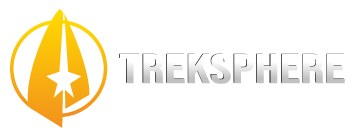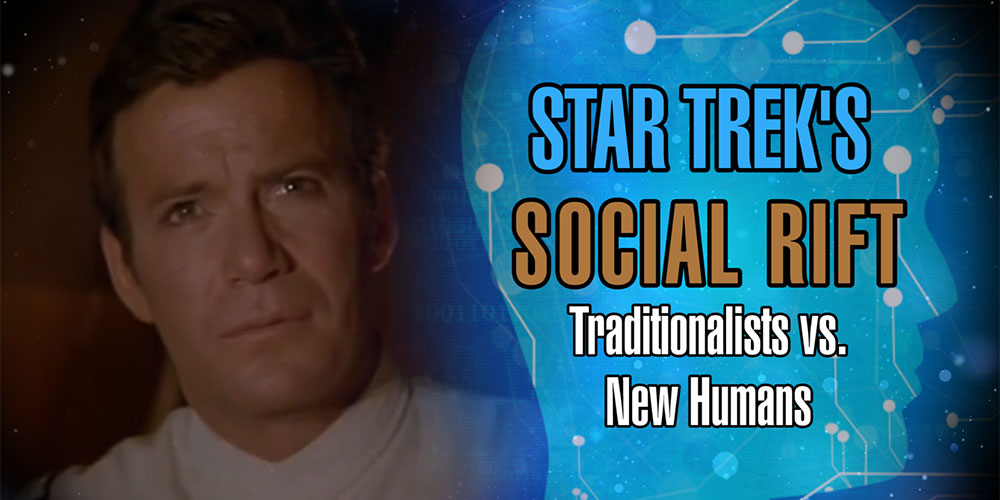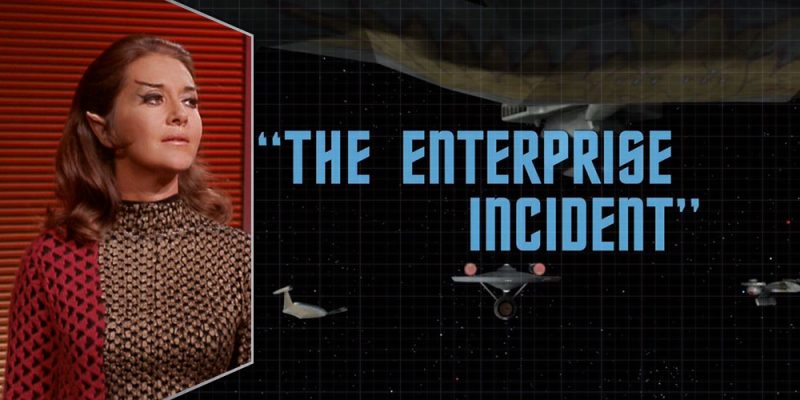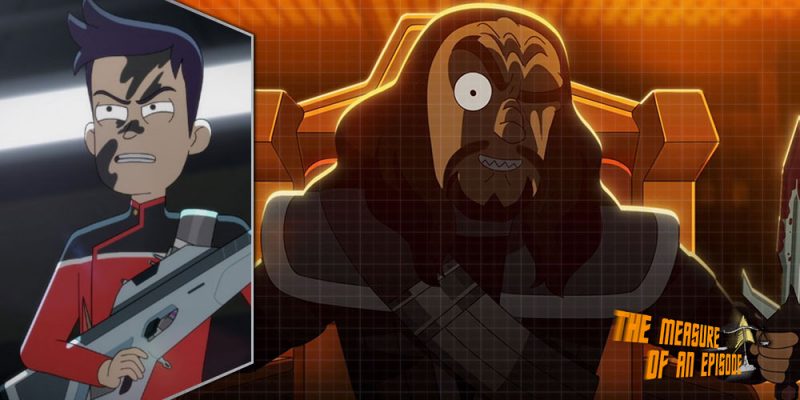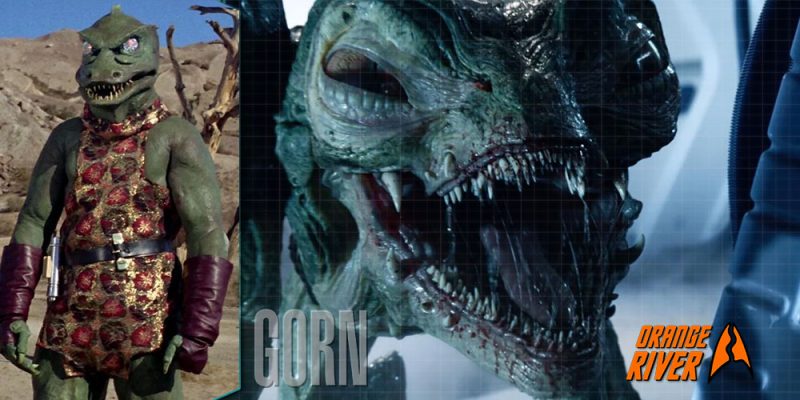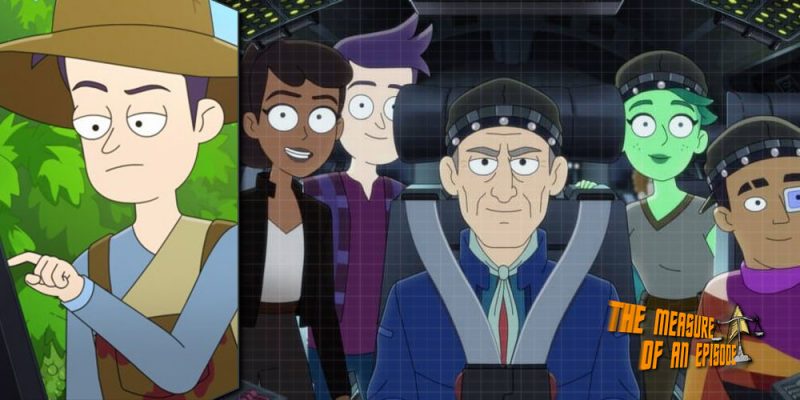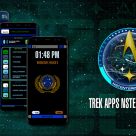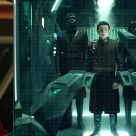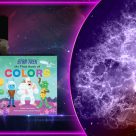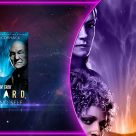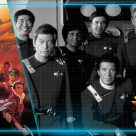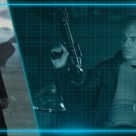Hey everyone, Tyler from Orange River here! Welcome to another video essay of mine where I take a look into various aspects of the Star Trek multiverse.
Today, I want to talk about a topic in Star Trek that piqued my interest a long time ago. That is, almost all of the humans that we’ve seen throughout the franchise share one defining characteristic: they’re all…like us. Now, you might be saying, “DUH!” But what I mean is that we see very few examples of humans who are enhanced with cybernetics or genetic engineering. There’s a very legitimate reason for both of these. In the case of the latter, it seems to be a result of a cultural shift away from genetic engineering in the wake of the Eugenics Wars. Humanity free of cybernetic enhancements sets them apart from enemies such as the Borg.
This is not a phenomenon exclusive to humans in Star Trek’s future, however; most alien races we see experience generally similar emotional traits, even Vulcans, who choose to suppress their emotions. Particular species even stereotypically exhibit certain traits: Klingons are boisterous and aggressive; Romulans are conniving; Bajorans are devoutly religious despite their technological advances. But humans specifically appear to be a projection of our contemporary selves, just in a different setting.
The actual reason humans behave the way they do on Star Trek is, of course, so audiences can relate to them. But the reason I bring this up is that this version of humanity—one that largely retains our collective personality flaws, unfettered curiosity, and emotional baggage—is not what many futurists believe our species will be like in the distant future. In the real world, a significant proportion of scientists view the concept of transhumanism as a natural extension of current computing and medical breakthroughs, and genetic engineering seems to be gaining acceptance in many societies for the same reason, albeit not without controversy.
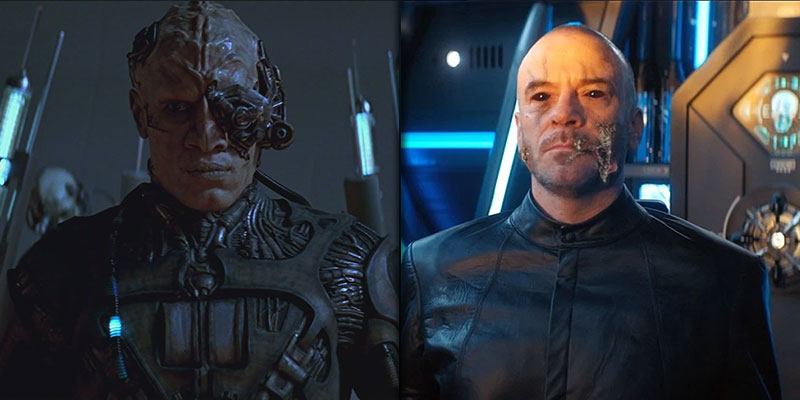
In his book The Singularity is Near, famed futurist author Ray Kurzweil predicts that the exponential growth of artificial intelligence in the coming decades will create major rifts in society. Biological humans who refuse cybernetic upgrades will tend to fall behind intellectually as the world rapidly moves past them. Kurzweil further predicts that by 2300, humans might be able to completely rearrange their bodies’ molecular structures at will—something conferred merely to alien species in Star Trek.
Whether this will actually be the case in our future, what’s clear is that this sounds very different from what we see in the Trek franchise. In the 22nd, 23rd, and even 24th centuries, cyborgs and genetically enhanced humans are not only rare but, in the case of the latter, illegal in the Federation.
Exceptions to this rule such as Geordi La Forge’s VISOR probably don’t count since that is essentially a medical device that doesn’t actually alter his DNA. So what explains the discrepancy between this purely biological humanity and the highly mechanized humanity several real-world futurists expect? To answer this, we must realize that Gene Roddenberry himself broached the subject in the 1970s. In the novelization of Star Trek: The Motion Picture, Roddenberry makes a bevvy of claims about the nature of the 23rd century, some of which run contrary to established canon. Notably, these include a hydroelectric dam across the Strait of Gibraltar that lowers the Mediterranean Sea 60 meters, exposing vast amounts of farmland—which is likely apocryphal due to the appearance of 24th century Earth in Star Trek: First Contact.
However, a couple passing references do seem to stand out that don’t directly contradict canon: the “Mind Control Revolts” and the “New Humans.” The Mind Control Revolts were revolts during the 2040s against behaviour-control implants that led humans to abandon the technology. Though not completely analogous, the Mind Control Revolts do bear some resemblance to the transhumanist phenomenon.
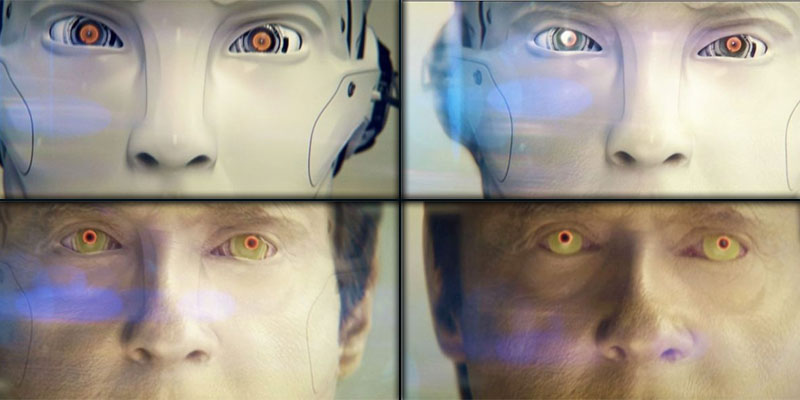
Another common complaint is that Star Trek seems to have missed the mark regarding the ubiquity of artificial intelligence, especially androids. However, my impression is that androids were similarly taboo for a long time in human culture, owing not to their inability to be produced but the threat they present to the fabric of society.
The most “logical” reason that Earth technology seems to be held back is likely due to the Vulcans. Enterprise establishes that the Vulcans interfered to a significant degree in human technological progression after World War III and first contact. This appears to have delayed advancement with warp drive, which is one of the reasons the NX program is so controversial to Vulcan observers. Therefore, humanity being pinned beneath the Vulcans’ heel could also explain why certain other technologies are delayed. As humans transition to a world government, the global focus shifts towards a self-serving agenda wherein human work is highly valued. This could explain the prevalence of human labour in later centuries despite the fact that many industries are likely still heavily automated. It’s not that the A.I. isn’t there, it’s just that it operates in the background as more of an aid to humanity than a hindrance.
But what about these “New Humans?” In The Motion Picture novelization, Admiral Kirk muses that humanity seems to be splitting into two groups: those who follow a more traditionalist lifestyle that would be familiar to real-world audiences and those who pursue telepathic and extrasensory upgrades, committing to a more isolationist “hive mind” critical of Starfleet’s values.
According to Memory Beta, the New Human Movement is actually a term used to describe humanity at large as society has shifted towards collective betterment and freedom from conflict. However, the clear distinction between “regular” humans and “enhanced” humans points to a broader cultural rift that has emerged on Earth in the background of the Trek franchise. One criticism of this “New Human” concept is that because we haven’t seen its exploration in canon, it’s not really worth discussing. I disagree because although The Motion Picture novel does feature numerous questionable references and outlandish concepts, the divide between traditionalists and New Humans could have major implications on the nature of Starfleet, the Federation, and the human species as a whole.
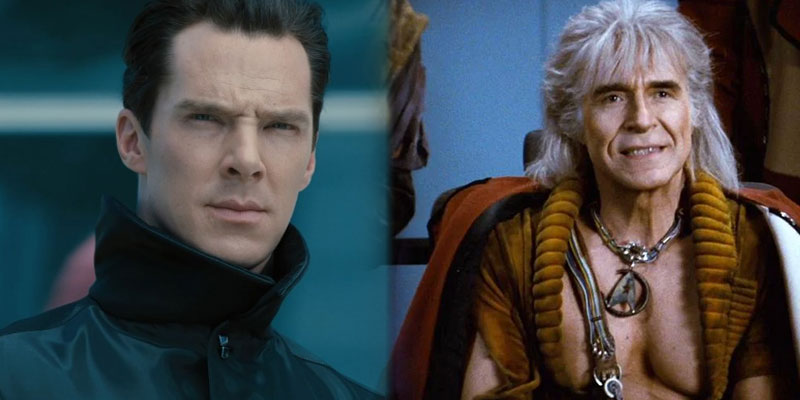
Even though we don’t see direct references to this divide in canon—at least to my knowledge—the fact is that we haven’t seen a lot of Earth in canon anyway. This hypothetical cultural divide among humanity in the Trek future could explain many attributes of Starfleet and Federation policy that we see in the movies and shows. A sizeable portion of the human population electing to pursue a more isolationist attitude would profoundly affect the demographic makeup of Starfleet Academy and the organization’s exploratory vessels.
Star Trek: Generations and Star Trek: Into Darkness demonstrate that Earth still has seemingly traditional news media in the 23rd century, which would influence the way Starfleet and its officers are perceived among the general public. Based on what we can only infer are the exceedingly high cost, risk, and military aims of Starfleet, it’s probably not out of the question that a great number of people on Earth and other Federation worlds possess a more non-interventionist stance on outer space issues.
This is why I am going to make the claim that those who pursue careers in Starfleet represent an increasingly small segment of human society: the traditionalists. I originally intended to frame this video as “Individualists vs. Collectivists,” but I realized that’s not exactly true. Starfleet’s hierarchical structure necessitates some level of conformity, and humans who participate in Starfleet still espouse a collective planet-based identity and admiration for humanity’s progressive values. Also, those who wish to remain on Earth need not necessarily abandon individualism in practice.
What I’m arguing, though, is that the type of person who enlists in Starfleet is not necessarily a representative sample of what most humans are like. One might say this is obvious given that Starfleet officers must possess a specialized set of skills to operate in space, but what I’m pointing to is deeper than that. This isn’t just about differences in skill sets, this is about a difference in philosophical outlook and cultural and behavioural norms.
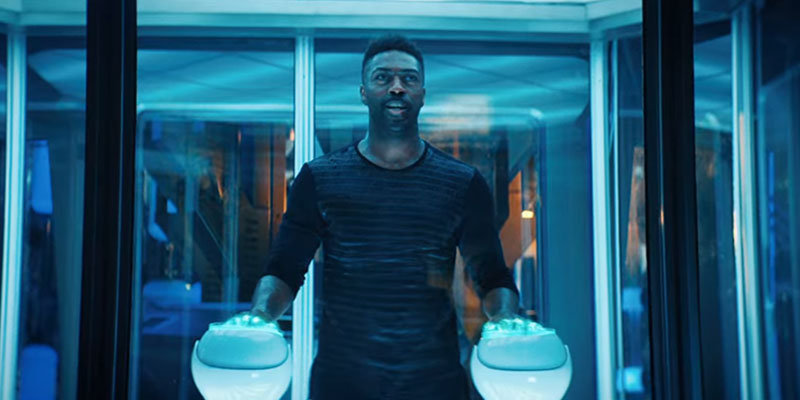
Humans in Starfleet could be an increasingly rare breed of human while the remaining population grows more disenchanted with the offers of space travel. The practical immortality offered by cybernetic upgrades within “New Human” society seems to be more and more appealing, according to Roddenberry’s novelization. Is it conceivable that in the near-post-scarcity economy of the future, most people might spend their time in full immersion virtual reality? To me, it’s at least worthy of contemplation.
There are also a number of other factors that could influence who enlists in Starfleet. The organization’s core values seem to, at least at first, descend from a more Western-oriented ethic of military adventurism. The Academy’s location in San Francisco and Federation leadership being seated in Paris could also play a role in Starfleet’s demographics, though we certainly see a sizeable number of people from Africa, Asia, and Latin America rising through the ranks as well. For more discussion on this topic, there’s a litany of Reddit threads that hypothesize about the makeup of Starfleet in various eras.
Whatever the case, I think it’s fair to say that there seems to be some semblance of a cultural divide between those who are more inclined to pursue space exploration and those content with staying on Earth. This could manifest in the political makeup of various states on Earth in the future as well as ideological divides within Federation leadership. But until we see exploration of this subject in canon, this is simply just speculation based on Roddenberry’s novel and inferences from other sources.
I’d like to hear your thoughts in the comments. Does this Traditionalist—New Human divide seem compatible with what we’ve seen established in canon? Or is there a much simpler explanation, such as the fact that Earth society today sees a divide between those who wish to join the military and those who don’t? Either way, I think this could make for an interesting discussion.
Thank you for watching this month’s video essay. If you enjoy content like this, Then please feel free to sign up to my Patreon and help me produce more content like this…
Watch The Latest Video By Orange River Media Below
Don’t forget to like and subscribe. See you next time! Live long and prosper.
You can find Orange River Media at the links below
- YouTube: https://www.youtube.com/orangeriver
- Twitter: https://www.twitter.com/orangerivernw
- Instagram: https://www.instagram.com/orangeriver.nw
- Facebook: https://www.facebook.com/orangerivernw
- Patreon: https://www.patreon.com/orangeriver
